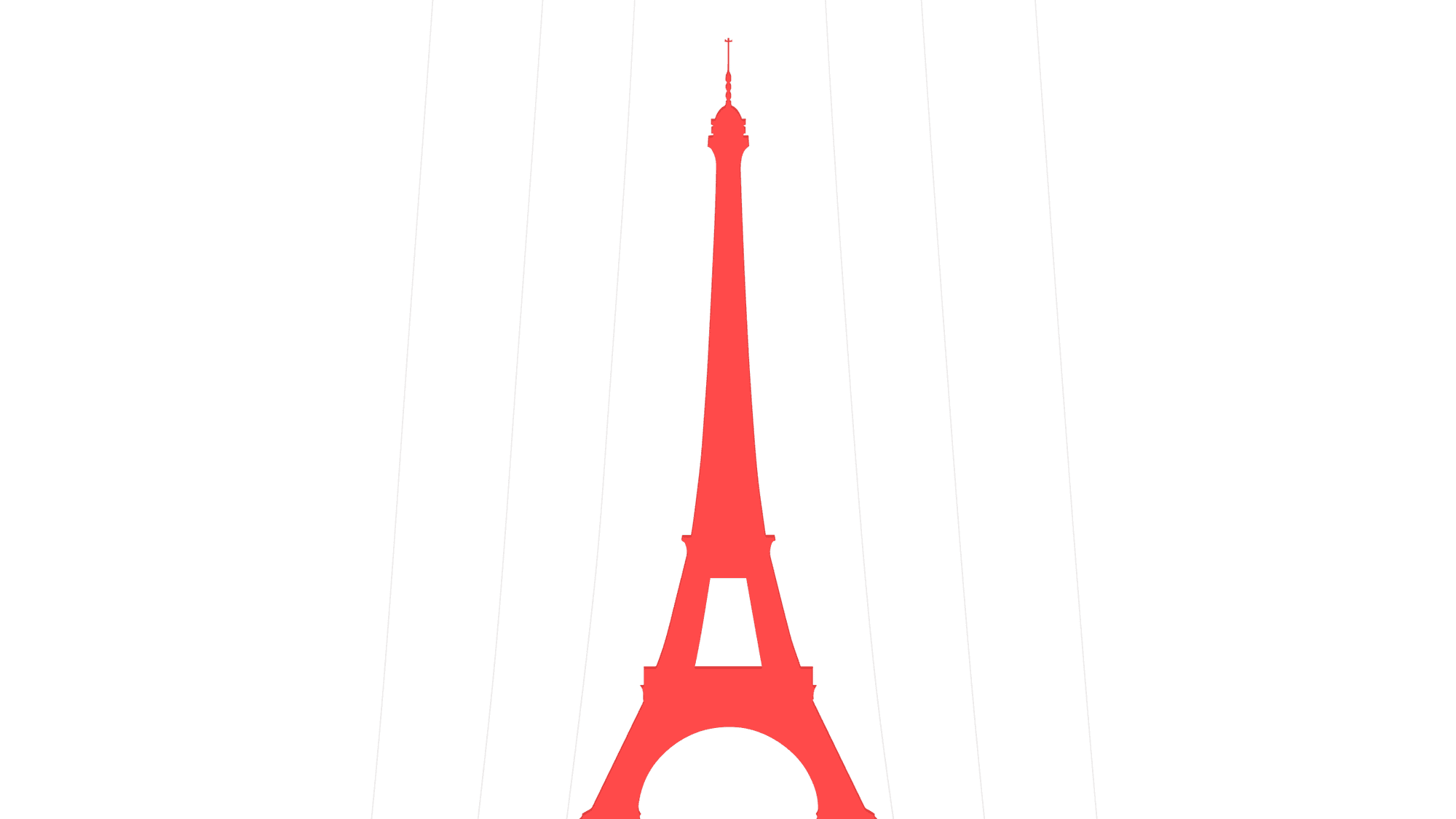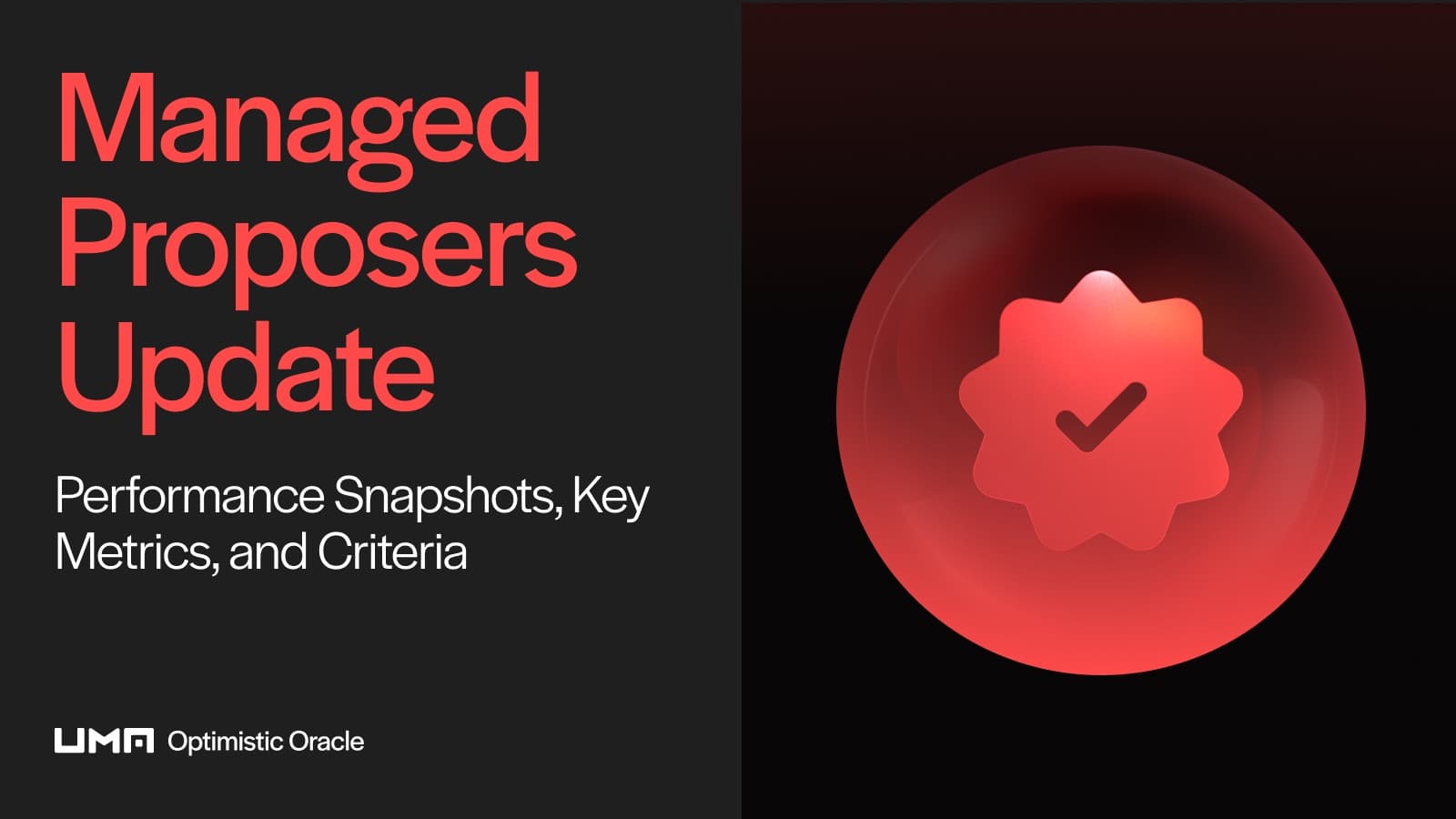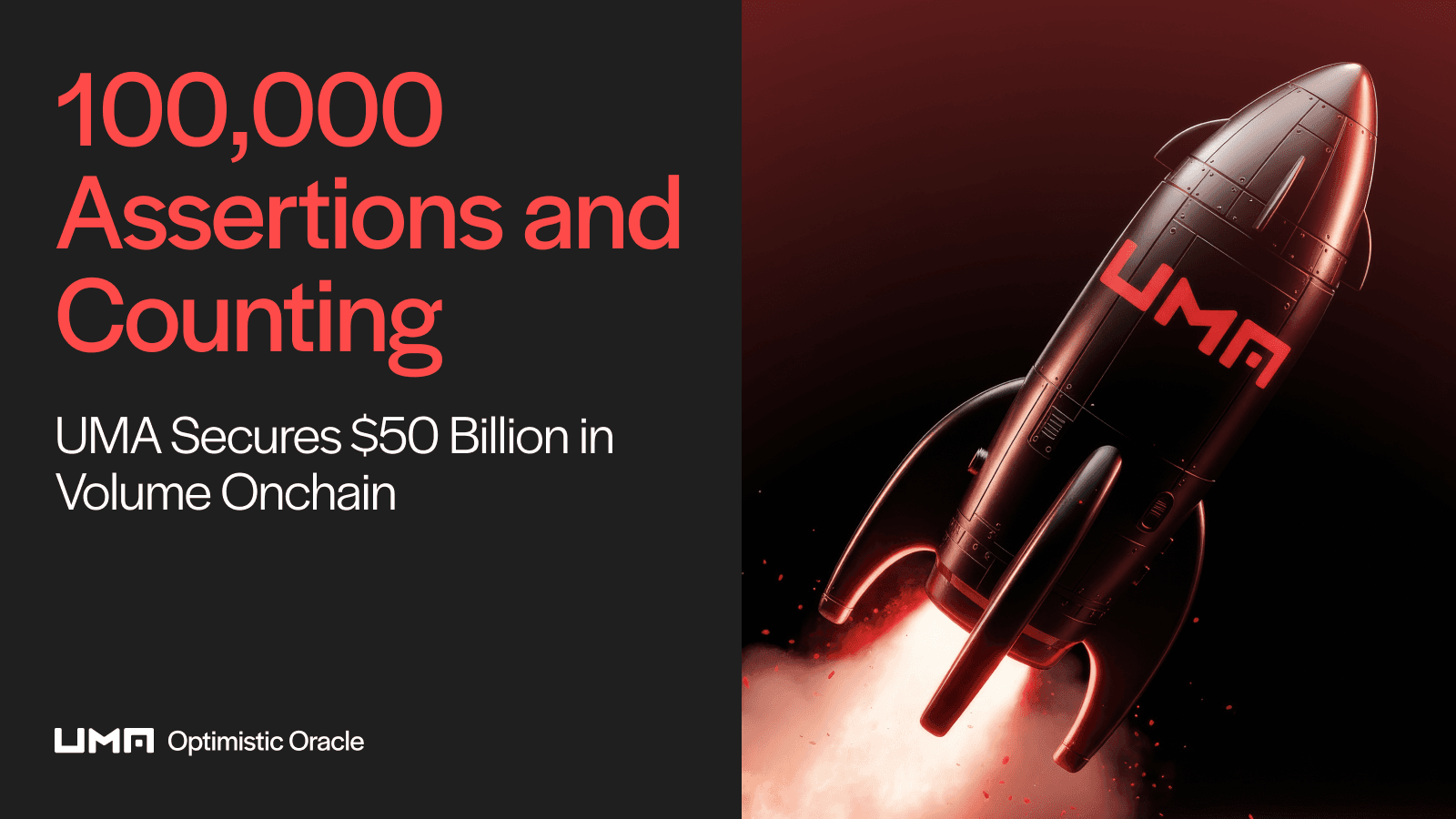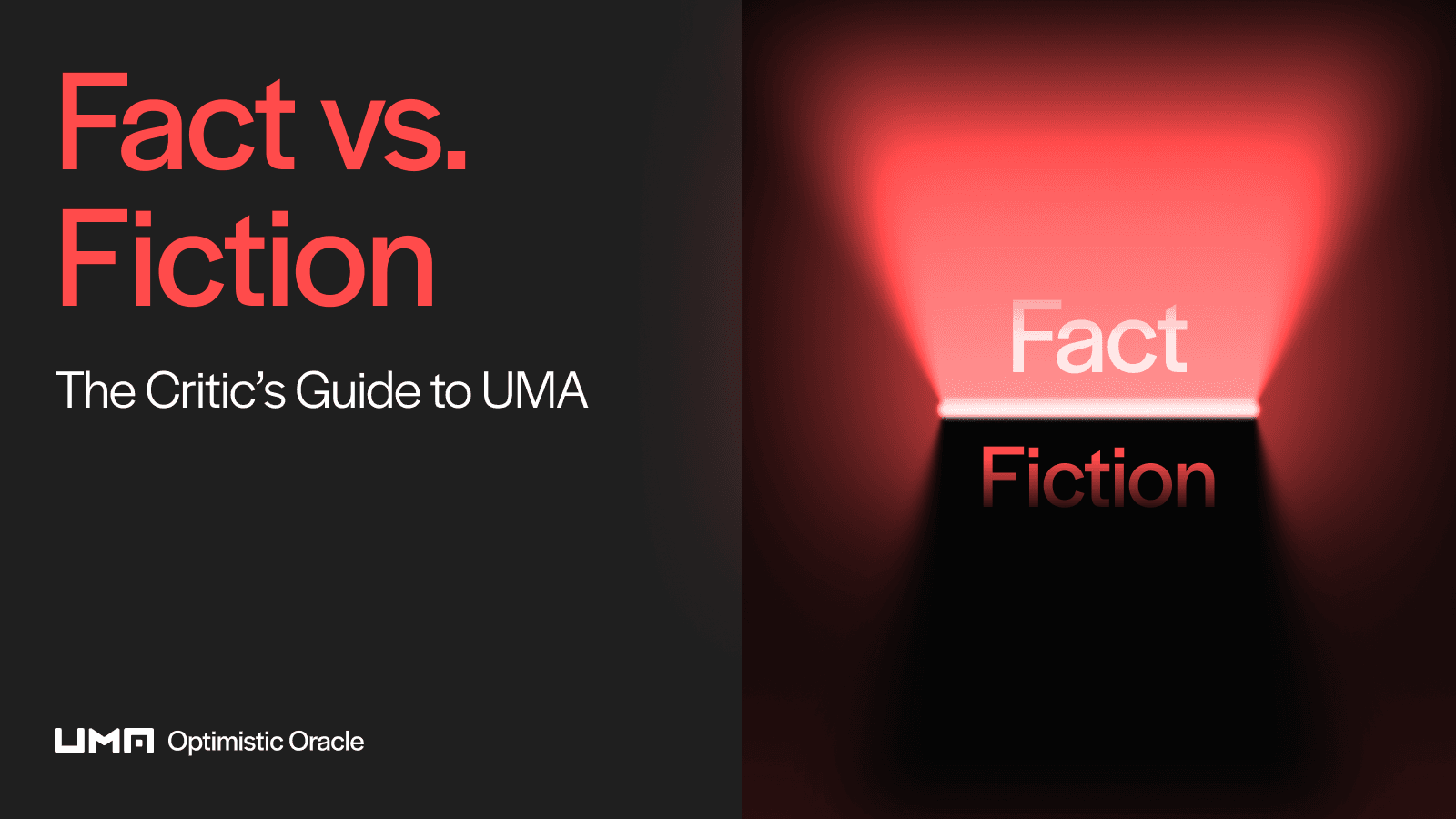Build with UMA at ETHGlobal Paris | Tips for surviving your first hackathon
Tldr; ETHGlobal lands in Paris for another three-day hackathon from July 21–23, and UMA is sponsoring the event. UMA developers will be on the ground to assist builders and select the best entries for our $10,000 prize donation. Hackers can check our list of survival tips below.
Key takeaways:
The ETHGlobal Paris hackathon is taking place from July 21–23, with UMA donating $10,000 to a prize pool worth $450,000.
Hackers can prepare for the event by following our essential tips.
UMA developers will also be attending the event to help teams build on UMA.
It’s often said that hackathons are the lifeblood of the crypto ecosystem. For almost as long as Ethereum has existed, talented builders have come together around the world to connect with the community, grind out code, and present their ideas to the world.
The Ethereum ecosystem is known for its developer-first culture, and hackathons sit at its core. Many of the ecosystem’s most vital projects came to life during intensive hacking sessions, and hackathons remain the best place to share new projects with like minded builders.
Yet builders often run into the same issues when attending hackathons, or they simply don’t know how to get started. As an early Ethereum project and regular on the hackathon circuit, the UMA team is well positioned to offer a few handy tips.
Ahead of the ETHGlobal Paris hackathon running from July 21–23, we’ve compiled some of our top suggestions in a survival guide for builders. ETHGlobal’s events are regarded as key dates in the Ethereum calendar, and we’re proud to partner with the team once again to sponsor the upcoming event. Builders can get all of the details and prepare with our tips below, then find us on the ground in Paris later this month.
All set for ETHGlobal Paris
ETHGlobal hackathons have always served as a hotbed for innovation in the Ethereum ecosystem, and ETHGlobal Paris should be no different.
Attendees will have the opportunity to connect with a global community of crypto innovators, get feedback from some of the ecosystem’s leading developers, and bring their ideas to life.
As with previous ETHGlobal events, UMA developers will be on the ground in Paris to support builders. UMA core team members will offer guidance to all teams hacking on UMA throughout the event and then select the best entries to receive our prize.
UMA is donating $10,000 in $UMA to a prize pool worth $450,000. Our full prize breakdown is as follows:
First place: $5,000
Second place: $2,000
Pool prize: $3,000
Why build on UMA?
For any major hackathon like ETHGlobal Paris, hackers have an abundance of choice when it comes to selecting a project to build on. Before writing any code, it’s worth researching partnering projects to get a sense of what you want to achieve.
Teams building on UMA will be able to use the OO to support their ideas. UMA acts as a decentralized truth machine for serving data to smart contracts. It can take any verifiable truth about the world and then trustlessly record it on the blockchain. UMA uses game theoretical principles, incentivizing tokenholders to monitor the oracle and dispute false data. Any disputed data gets deleted. As the system ensures disputes are rare, the oracle is “optimistic.”
Get ready to build something amazing
If you’re looking to build on UMA, we’re here to help. Our developers will be ready to offer assistance and answer any questions you have in Paris. Ahead of the event, we’ve also put together a list of tips to help hackers based on our experience at previous hackathons. Use this as a checklist to prepare for hacking and get ready to build something amazing.
Assembling a team — all projects are required to build their teams before hackathons kick off, but the best entries tend to come from versatile teams that gel together nicely. Ideally, you want a group that have worked together previously, with each member bringing a different skill to the table. It’s no use having a group of backend wizards if you completely neglect the frontend work.
Picking a project — while you can’t start writing code before the event, it’s important to do some research, and that includes picking a project to build on. It might be tempting to scope out the biggest bounties, but it makes more sense to go with the projects you understand and genuinely want to build something cool with. To plan for ETHGlobal Paris, you can visit ETHGlobal’s Showcase page to check out previous projects built on UMA. It’s also a good idea to talk to the team you want to build with. The UMA team will be on hand to help builders throughout the event.
Planning your project — before you start to think about hacking, you need to develop a plan for building your project. The first step is to define your problem statement by answering the issue you want to fix. Work out how you’re going to do that and write up a wishlist of features you want to make it happen. Then decide on the projects you’ll leverage and allocate responsibilities to individual features. If possible, make sure every team member is working on a feature they’re passionate about.
Staying on track — three days may sound like a lot of time, but it passes quickly. You should be ready to get to work from day one and be prepared to stay focused through to the final whistle. The more planning you’ve done in the lead-up, the easier this will be. This includes knowing your features and workload — if it turns out that you’re running out of time, cut the wishlist down. Make one team member responsible for overseeing the team’s efficiency, but remember to pace yourselves. Resist the urge to go leveraged long on caffeine, and make sure you’re sleeping and eating properly outside of hacking.
Finishing your submission — we often get excited about ambitious ideas as hackathons start only to find the team has to cut corners and submit an incomplete entry when the event wraps. While the idea of adding a long list of features is nice, it’s better to submit a modest project at completion than an unfinished concept with poor implementation. Plus, remember that your entry does not stop at shipping code. Elect team members with the strongest presentation skills to sell your project to the judges — you want to convince them that this is an idea the world needs. Our team has judged many ETHGlobal hackathon entries and the best almost always include a slick website and presentation.
Most importantly, have fun. It’s easy to get swept up in the competitive nature of hackathons, but above all they’re an opportunity to get together with other hackers, learn, and have the chance to contribute valuable ideas to the ecosystem.
What can you build with UMA?
The flexibility of UMA’s optimistic oracle allows for a wide range of use cases. UMA can verify all kinds of data, so it can support many different kinds of decentralized projects.
Hackathons have long been a place where UMA builders can develop their bright ideas. Recent highlights from ETHGlobal hackathons include Roll a Mate, whose mempool hacking project offers drastically reduced Ethereum transaction fees. The team won a prize from us and also reached the ETHGlobal Waterloo finale.
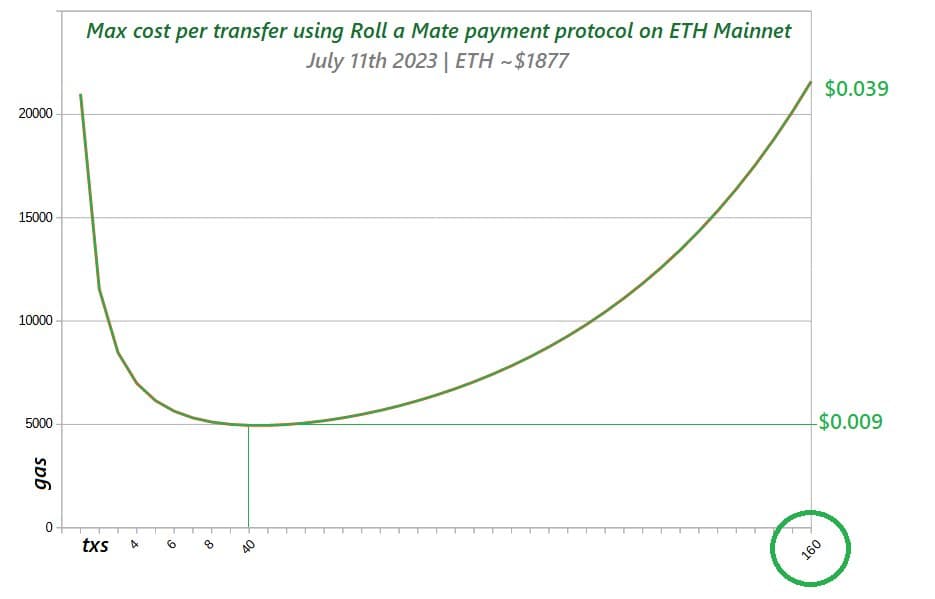
ETHGlobal Waterloo also saw several pioneering ideas for using the OO to support AI-based LLMs. The event’s standout entry was UMAIA, an optimistic attestation tool for answering queries with the OO verifying the results.
Some of the coolest project submissions we’ve seen have used the OO to offer on-chain insurance. Previous ideas have included flight insurance and natural disaster insurance where the OO verifies whether an event happened and then triggers payouts, but the scope for offering other kinds of cover is limitless.
If you’re looking for fresh ideas to get your creative juices flowing, here are some other possible ways to build on UMA:
An on-chain fantasy league game.
Since the 2021 bull run, the sports industry has started to adopt blockchain at scale. Yet today’s use cases are mostly focused on NFTs and social tokens. Similar to how games like Fantasy Premier League use match statistics to determine winners, an on-chain equivalent could use the OO to verify real-world sports player data and issue rewards to winning gamers. Dynamic NFTs could be used to represent each player.
A platform for trading physical art for NFTs.
The traditional art world and NFT ecosystem are becoming increasingly intertwined. But there’s currently no way for, let’s say, a Banksy collector to securely exchange one of their pieces for a Fidenza. This idea could help fine art collectors enter the NFT space and vice versa by using the OO to verify the price of assets and resolve disputes.
A trading venue for gas futures.
Historically, whenever $ETH rises in price, Ethereum becomes more congested. This causes gas clogs, and the price of using the network soars in dollar terms. An on-chain trading venue could let $ETH holders make predictions on whether the gas price will rise or fall within a specific time horizon, similar to how call and put options work. $ETH bulls could take out call options on fees rising from $ETH bears, and the OO could verify the gas cost at expiry. This would allow for a variety of strategies where $ETH holders can hedge against rising transaction costs.
À tout à Paris
Hackathons provide a chance to contribute to the future of Web3, and we’re excited to see the ideas that come out of ETHGlobal Paris. We hope that this guide will help inspire the next generation of all-star builders ahead of the event.
If you’ve already got an idea on how to hack with UMA or Across Protocol, visit our developer docs to get started and get in touch with us here. You can also say hi at integrations@uma.xyz, drop us a DM on Twitter, or head to our hackathons channel on Discord. You can also come and find us at the hackathon.
ETHGlobal Paris runs from July 21–23 and winners of the $10,000 UMA prize will be announced over the course of the event. We look forward to checking out your projects soon.
Words by @dreamsofdefi
